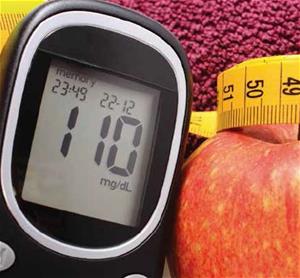Jan 11, 2017, 13:14
by
Gerri French, MS, RDN, CDE

If you have a tendency to feel shaky between meals or experience sweating, nausea, extreme hunger or feelings of anxiety or mood swings, beware the ghost of Holiday Sweets.
Eating concentrated sweets like candy, cookies or apple cider, especially on an empty stomach can produce these symptoms suggesting “reactive hypoglycemia” which is a term for “low blood sugar”. What might be happening is the pancreas (the organ responsible for insulin production) could be overreacting to the large burst of sugar and release excess insulin which can produce these feelings. If a person has the ability to check their glucose, it might be “normal” (less than 70 is considered low), however the dramatic change in glucose may be producing symptoms. The solution to fix this immediate problem is actually the same as what caused it: drinking fruit juice or eating sugary foods, however this will stimulate the roller coaster effect. The ultimate goal is to prevent the symptoms. Physical activity after eating sweets can mitigate the spike in sugar since physical activity is comparable to “healthy invisible insulin.” A simple 15-minute walk is beneficial.
In addition to sweets, the dietary culprit to reactive hypoglycemia is an excess consumption of refined carbohydrates: pancakes with syrup, white rice, bagels, cereal, for example, without adequate amounts of protein and fat. During the holiday season we often skip meals because we are busier than usual, which leads to cravings for these quick carbohydrate food choices.
Eating the right combination of foods can make a difference with our energy and insulin response. Enjoying balance of foods with carbohydrates (whole grain bread, tortillas, beans, fruit) with healthy fats (avocado, nuts, seeds, olive oil), protein (meat, fish, poultry, cheese, tofu) and vegetables is ideal. Enjoying dessert after a meal is preferred to eating cookies and candy alone. Chocolate desserts may actually be preferable to sugary candies and cookies because the fat in chocolate may delay stomach emptying. Plain dark chocolate is best because it contains less sugar and more fiber than other candies; or perhaps dark chocolate covered nuts.
A few other factors that can also contribute to reactive hypoglycemia include excessive stress, lack of quality sleep and caffeine. This time of year is notorious for added feelings of stress (family visits, decision making, financial pressures.) Stress hormones are released when we experience true danger or simply by worrying. Excessive anxiety increases resistance to proper functioning of insulin which encourages the body to produce more insulin. This can lead to weight gain, with fat storage in the mid-section since insulin’s other function is to store fat. Excessive intake of caffeinated beverages can exacerbate the stress response and also create sleep disturbances, both of which can change our hormonal responses. Incorporating exercises such as yoga, tai chi or Qigong which involve rhythmic diaphragmatic breathing are wonderful ways to relax the body and relieve stress.
The holiday season is a special time to enjoy family and friends. It might require being creative with balancing meals and fitting fitness into your schedule. A registered dietitian can help brainstorm ideas with you and help create simple, practical meal plans.
Learn more about nutrition counseling at Sansum Clinic. >